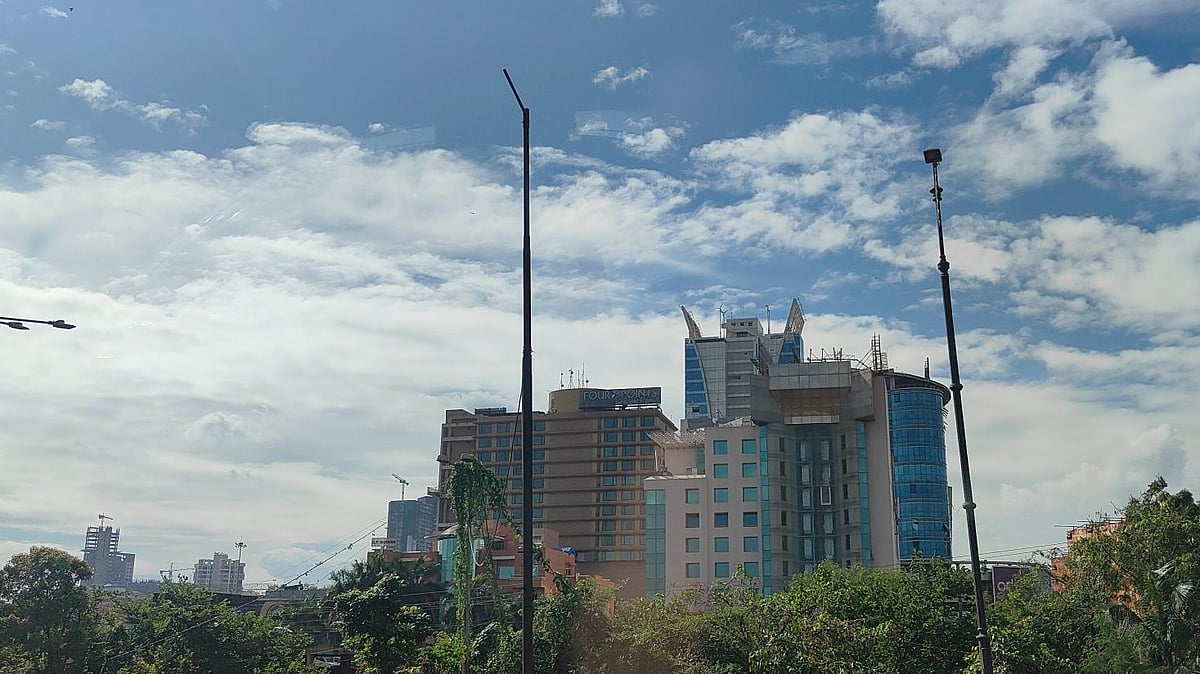New Delhi [India], September 4: In one of Delhi’s most closely watched property disputes, the Delhi High Court ruled in favour of Onkar Infotech, the registered owner of a 3.81-acre farmhouse in Bijwasan’s upscale Pushpanjali Farms. The estate, with a 30,000 sq ft residence, sprawling lawns and an outhouse with a pool, had been serving as the official residence of the GMR Group’s Chairman and Managing Director.
The verdict was straightforward. Justice Subramonium Prasad held that the lease relied on by GMR affiliates was unregistered, unenforceable, and incapable of proving tenure. The court categorically said the defendants were “month-to-month tenants”, and those tenants had already been served a valid termination notice. Translation: time to move out.
The ₹115 Crore Stake
Onkar Infotech entered the picture in May 2024, buying the Pushpanjali Farms property from Indus Sor Urja for ₹115 crore, including nearly ₹9 crore in stamp duty and registration fees. The transfer was duly recorded through a registered sale deed.
At that time, Delhi International Airport Limited (DIAL) and its affiliates were paying rent of about ₹45.62 lakh plus GST every month. The lease dated back to April 2020, when Indus Sor Urja handed over the estate to the GMR companies under a deed that was never registered. That misstep would prove fatal.
Onkar took no shortcuts. It secured registered ownership, got the sale deed executed, and even had the security deposit of ₹2.72 crore transferred in its name. The High Court noted that DIAL acknowledged the transfer, sought Onkar’s bank details, and even remitted rent. Those actions, the court said, made the landlord-tenant relationship crystal clear.
The GMR Defence: Creative But Hollow
Faced with the termination notice, the GMR side rolled out a series of defences. They argued the land was technically agricultural, making the Delhi Land Reforms Act (DLR Act) applicable and blocking civil eviction suits. They claimed the lease was informally extended up to 2028. They also accused Onkar of suppressing its status as “bhumidhar” in the revenue records.
None of it stuck. Justice Prasad pointed out the obvious: the estate wasn’t growing crops, it was hosting a luxury residence with a swimming pool. The DLR Act applies to farmland, not a corporate honcho’s bungalow.
As for lease extensions, the court reminded everyone that under the law, an unregistered lease deed has no evidentiary value for tenure. “The lease being unregistered cannot be evidence for ascertaining the time period of the lease,” the judgment said.
In short: no registration, no protection.
Legal Clarity, Not Courtroom Theatrics
The High Court judgment leaned on Sections 17 and 49 of the Registration Act, 1908 and Section 107 of the Transfer of Property Act. The position is black and white: if a lease exceeds 11 months, it must be registered. If not, it defaults to a month-to-month tenancy.
That’s precisely how the court saw it here. Once Onkar issued the termination notice on July 7, 2024, the tenancy ended. Any continued occupation became unlawful.
The judgment also rejected the idea of dragging the case into a full trial, noting that the defence had “no real prospect of success.” In litigation terms, that’s the legal equivalent of “don’t waste our time.”
Who Stood Where In Court
Onkar Infotech came armed with heavy legal firepower. Senior Advocates PS Patwalia and Dayan Krishnan led the charge, supported by a team including Harpreet Singh, Karan Luthra, Shreedhar Kale, Yogesh Malik and Rohan Dua.
GMR’s defence was spearheaded by Senior Advocate Rajshekhar Rao, assisted by advocates Amitabh Chaturvedi, Ankit Monga and Shourya Tomar. Other defendants had their own senior representation. But the combined bench strength couldn’t paper over the one glaring hole: an unregistered lease deed.
It Matters For Indian Real Estate
This case is more than a corporate tug-of-war. It sends a blunt message across India’s property market: paperwork rules.
Too often, companies rely on informal extensions, friendly arrangements, or verbal assurances. Courts won’t honour those if the core document, the lease, isn’t registered. For landlords, this ruling is a reassuring precedent that ownership rights hold strong against big corporate tenants.
And for tenants, especially those in high-profile situations, it’s a cautionary tale. No matter how big your brand or how deep your pockets, you can’t out-muscle the law.
In Delhi’s high-stakes real estate, where farmland gets converted into luxury residences overnight, this ruling also clarifies that the DLR Act won’t protect properties that have been fully developed for non-agricultural use. That closes a common loophole often exploited to stall evictions.
A Precedent That Cuts Both Ways
Pushpanjali Farms isn’t just prime real estate; it’s a symbol of how India’s corporate world often treats property paperwork casually. Onkar Infotech’s victory is not about flexing muscle; it’s about demonstrating that compliance with the law prevails, regardless of who sits on the other side. For Onkar, it’s more than reclaiming a farmhouse. It’s a legal affirmation that when you buy a property, register it, and follow the process, the courts have your back.









